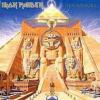It's really disappointing to see how fast topics relating to God, and Jesus Christ in particular, can become so needlessly heated and convoluted. Can the primary contributors to this forum please regain some composure and detachment from the argumentation?
Despite popular belief, the bible is not an historical document. You cannot call these claims "facts".
However, let me just focus in right here.
1) All four of your canonical gospels describe this event differently.
2) THERE IS NO ROMAN SOURCE OF IT. You, are either a liar, or completely ignorant.
Now, why the fuck am I wasting my time on complete idiots?
Bron, I understand your frustration, but unfortunately you're incorrect on all of your points here. I sincerely ask for your patience in this, as well as those reading this post. I fully expect an in-depth critique of my response, but I only ask for as much objectivity and kindness as possible.
You're close to the truth in saying that the Bible is not a historical document,
but only insofar as the fact that
the Bible is merely an anthology of various Jewish authors. The various writings that make up the biblical collection have various degrees of scholarly creedence, yet
one doesn't need to accept the Bible in its entirety in order for the aforementioned facts to be deemed historically credible. So long as the documents pertaining to those specific facts are deemed credible, or even more specifically, the sections
within those documents pertaining to those specific facts, that is sufficient for historical reliability. This presupposition is supported by the majority of New Testament scholars, including both atheists and theists alike. Please take note of what I'm saying here, and what I'm
not saying. What I
am saying is that the majority of New Testament scholars (those who have a legitimate expert and scholarly opinion on the matter, a group composed of both atheists and Christians alike), agree on the "minimal facts" presented by Shadowhawk and Manny, a scholarly consensus that has been recently brought to light through the research of Dr. Gary Habermas. What I'm
not saying is that the majority of New Testament scholars consider the resurrection of Jesus a fact. That conclusion, however, can be reached through deduction by examining the various "minimal facts" advocated by Habermas, and how these facts, when viewed in juxtaposition and as a complete case, refute competing theories (such as the
swoon theory, group hallucinations, conversion disorder, etc).
On another note, you mentioned that all four gospels describe this event differently. On the one hand, there is no difficulty in reconciling the various resurrection accounts, so long as they are viewed for what they are: individual perspectives of the resurrection event, which can be pooled and compiled to form a single, cohesive event sequence. However, even if you are unwilling to accept that conclusion, the resurrection accounts
do not need to match in order for the resurrection event to be historical. A good example of this is the burning of Rome under Nero. There are numerous accounts of this burning, yet they all vary distinctly in certain areas (
when the fire started,
where the fire was started, how much of Rome was burned, etc). Yet the existence of these discrepencies does not give any justification for the conclusion that there was
no fire in Rome; the conclusion that there was a fire in Rome is uniformly agreed upon by the various sources, and so to is it uniformly agreed upon by the various Gospel accounts that Jesus came back to life after he died on the cross.
You mentioned that there are no Roman sources: I'd like to direct you to
Publius Cornelius Tacitus, as well as
Titus Flavius Josephus. Tacitus was one of the most reputable historians of ancient Rome. In regards to the burning of Rome under Nero, Tacitus had this to say:
"But neither the aid of man, nor the liberality of the prince, nor the propitiations of the gods succeeded in destroying the belief that the fire had been purposely lit. In order to put an end to this rumor, therefore, Nero laid the blame on and visited with severe punishment those men, hateful for their crimes, whom the people called Christians. He from whom the name was derived, Christus, was put to death by the procurator Pontius Pilate in the reign of Tiberius. But the pernicious superstition, checked for a moment, broke out again, not only in Judea, the native land of the monstrosity, but also in Rome, to which all conceivable horrors and abominations flow from every side, and find supporters. First, therefore, those were arrested who openly confessed; then, on their information, a great number, who were not so much convicted of the fire as of hatred of the human race. Ridicule was passed on them as they died; so that, clothed in skins of beasts, they were torn to pieces by dogs, or crucified, or committed to the flames, and when the sun had gone down they were burned to light up the night. Nero had lent his garden for this spectacle, and gave games in the Circus, mixing with the people in the dress of a charioteer or standing in the chariot. Hence there was a strong sympathy for them, though they might have been guilty enough to deserve the severest punishment, on the ground that they were sacrificed, not to the general good, but to the cruelty of one man." (Annals XV, 44)
Not only is he a reliable Roman source in regards to the death of Christ under Pontius Pilate, he was explicitly opposed to the new sect within Judaism that emerged, that "pernicious superstition." His reference to the crucifixion of Christ counts therefore as an
enemy attestation to Jesus' death, as well as the momentum of nascent Christianity. That is important for obvious historical reasons. The same can be said of Josephus, who was a Jewish historian that underwent a complete post-war defection to the side of his Roman conquerers, and remained a Roman henceforth.
This response is in no way comprehensive, but I hope it helps to elucidate some of the background here.
Edited by NeuroGuy, 05 April 2013 - 04:48 PM.





















































